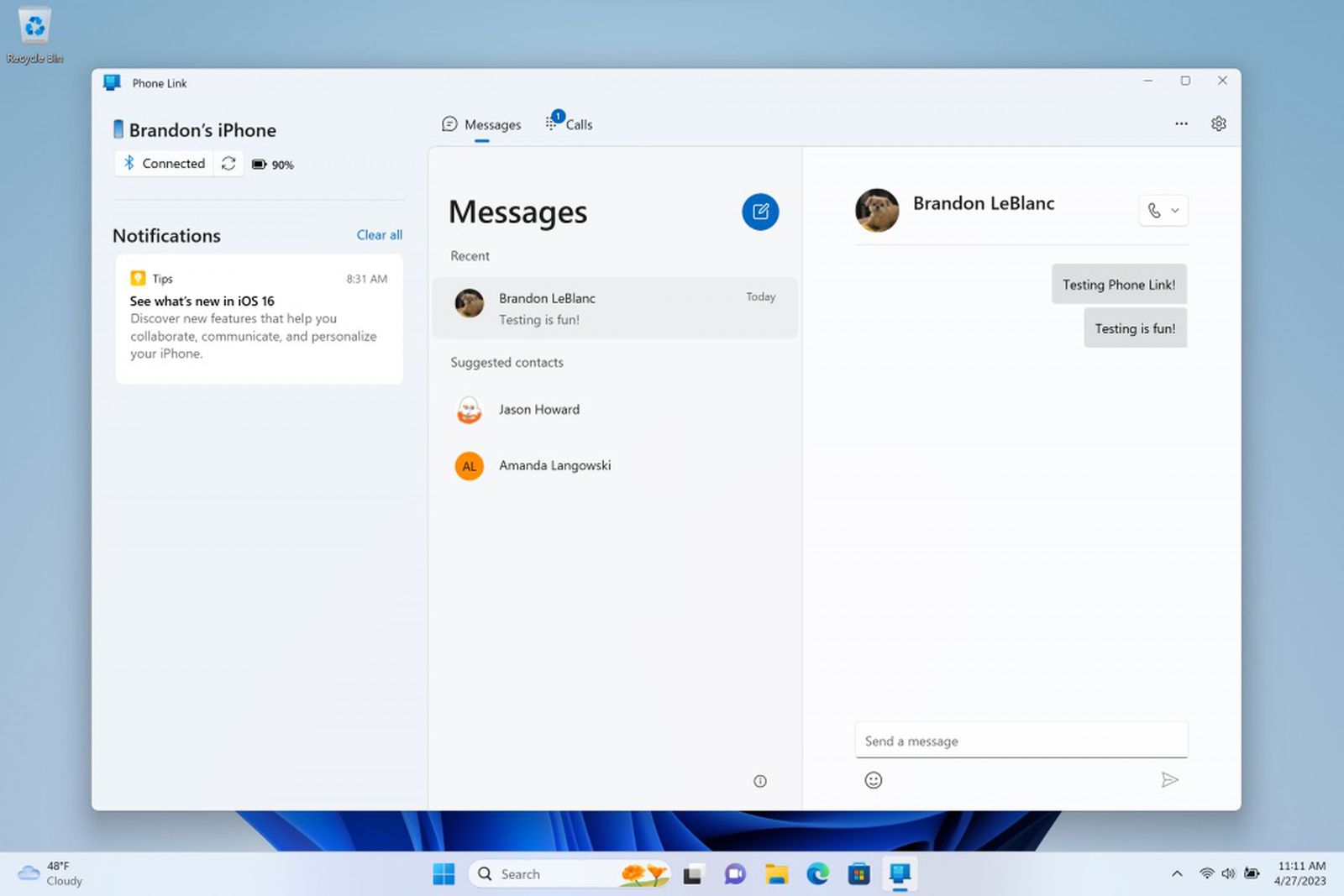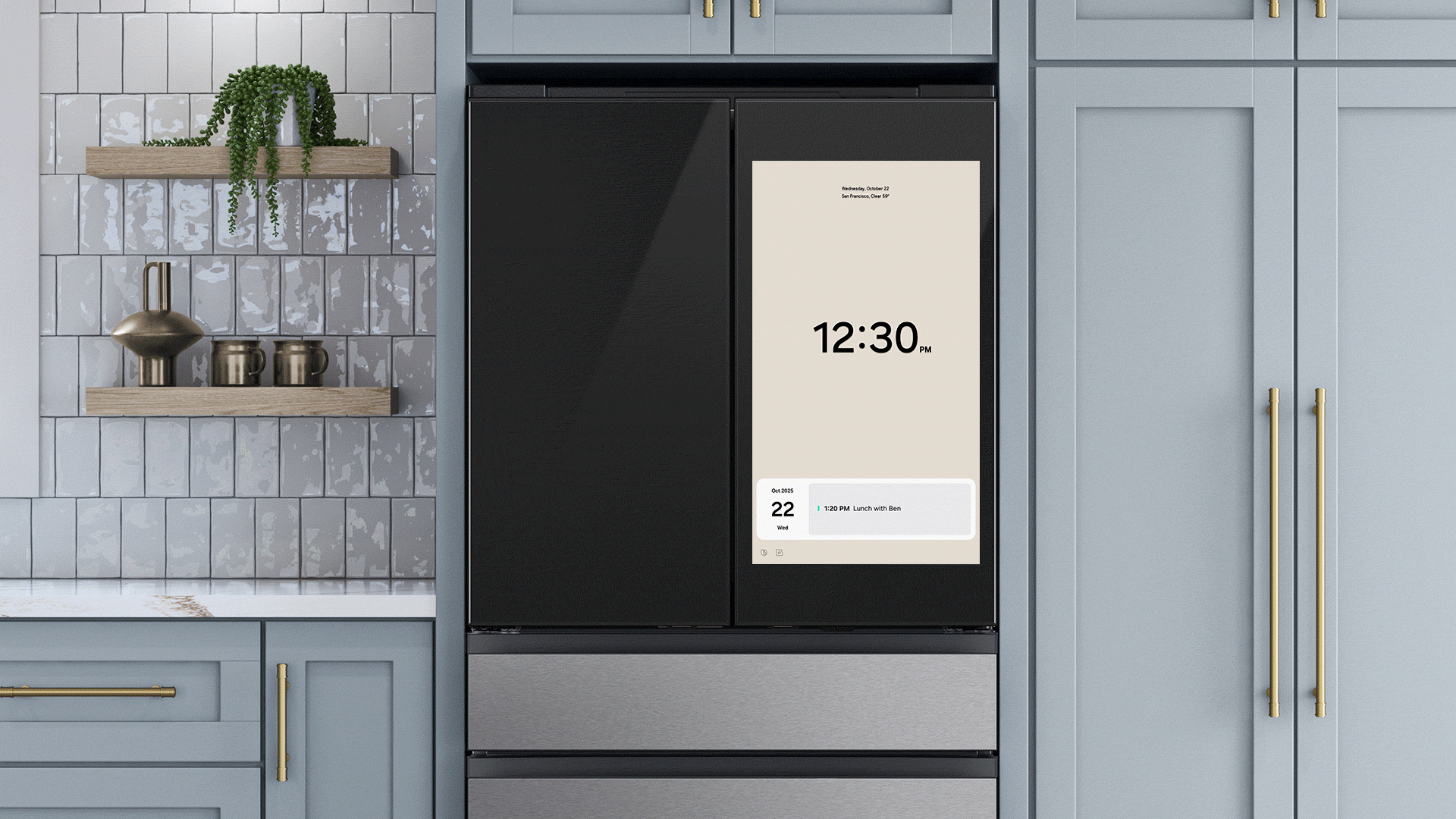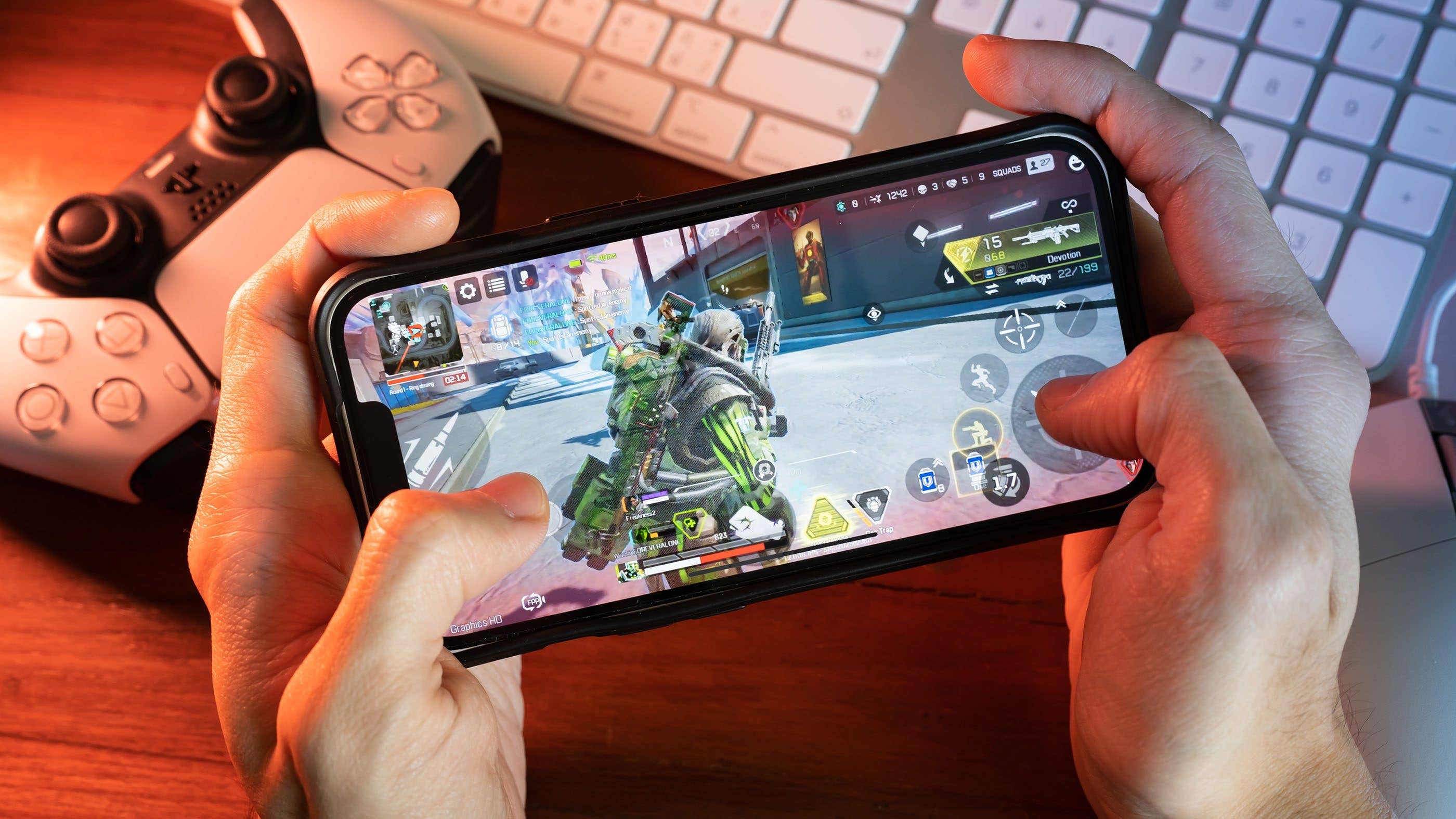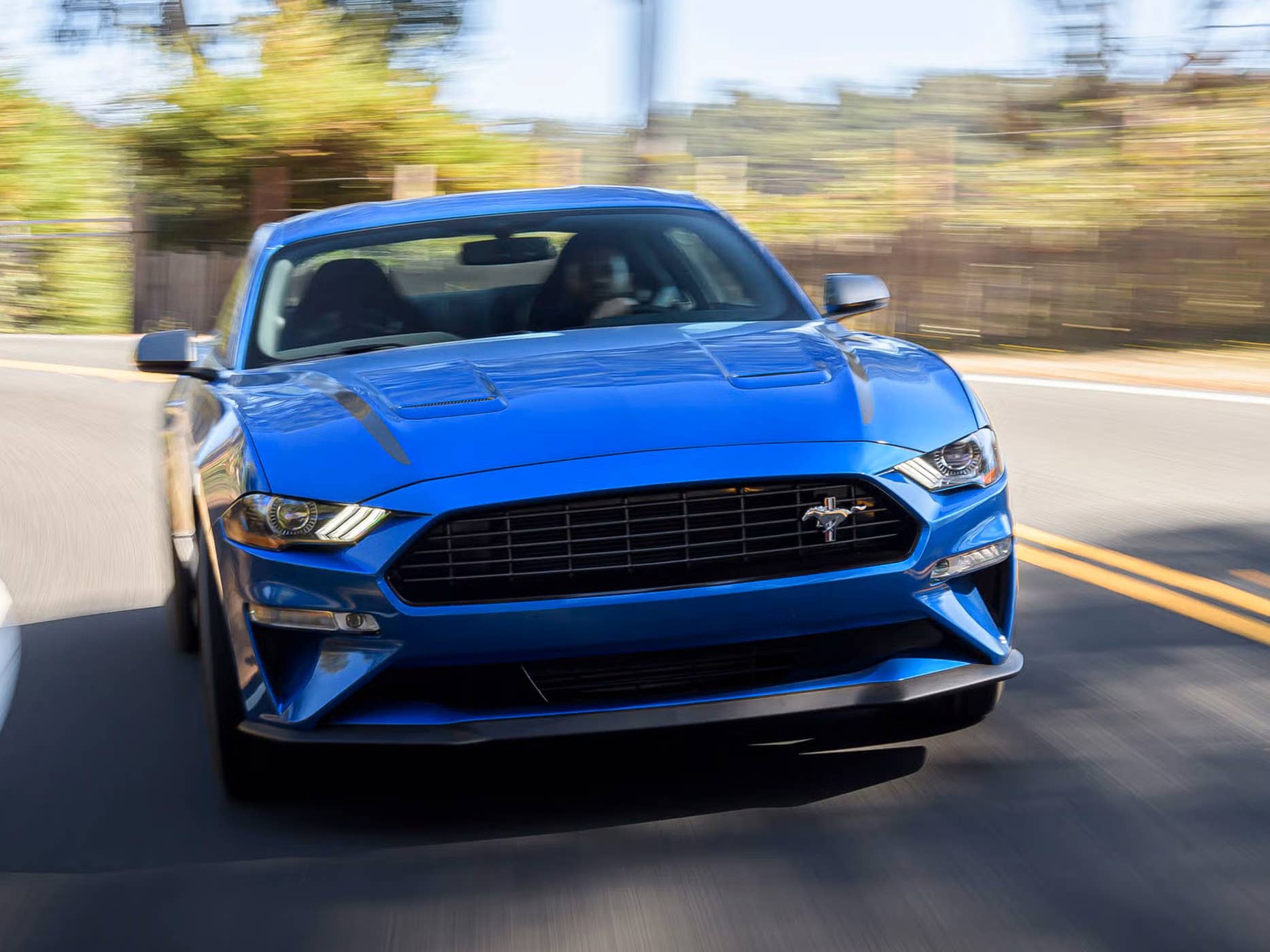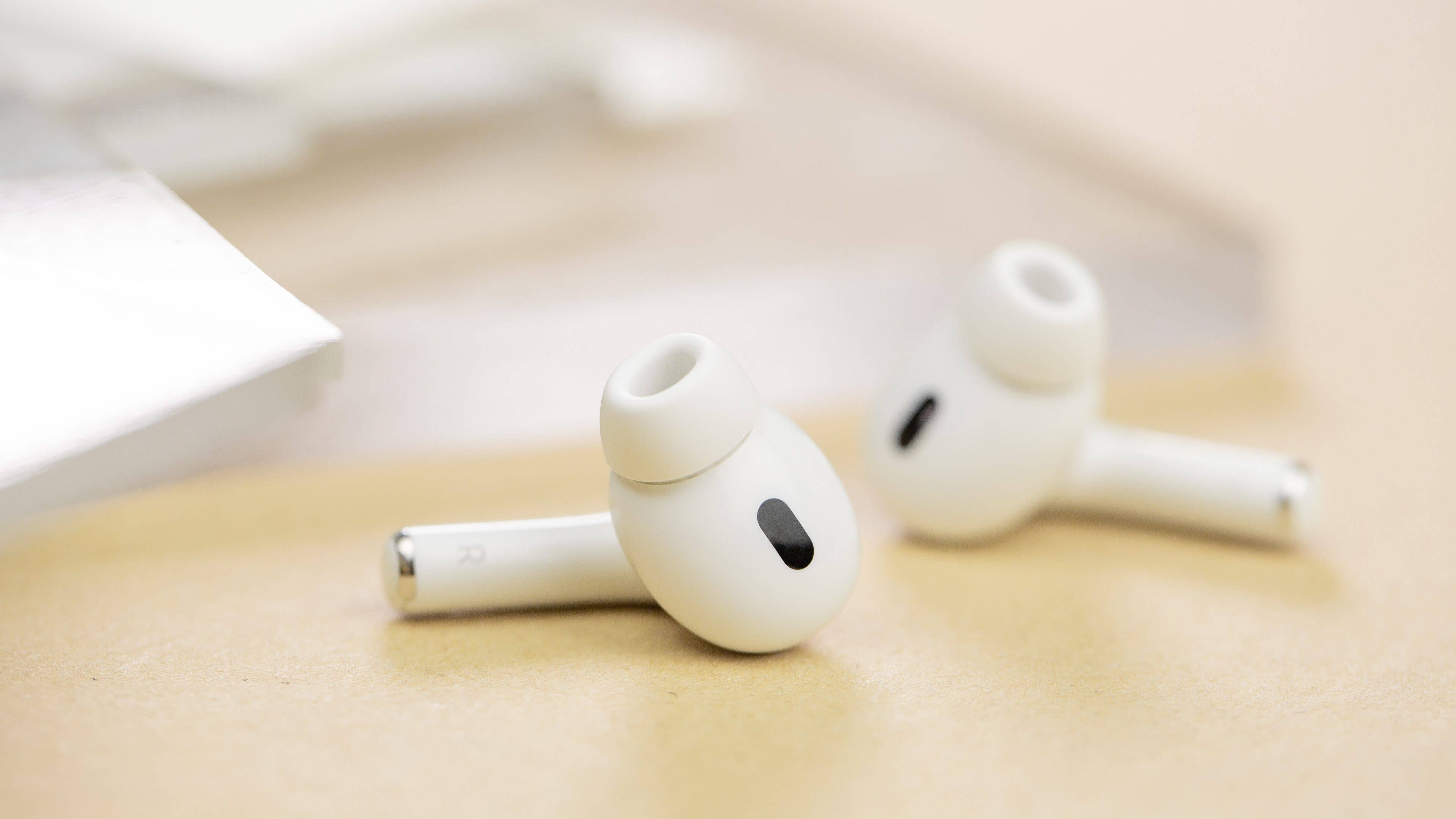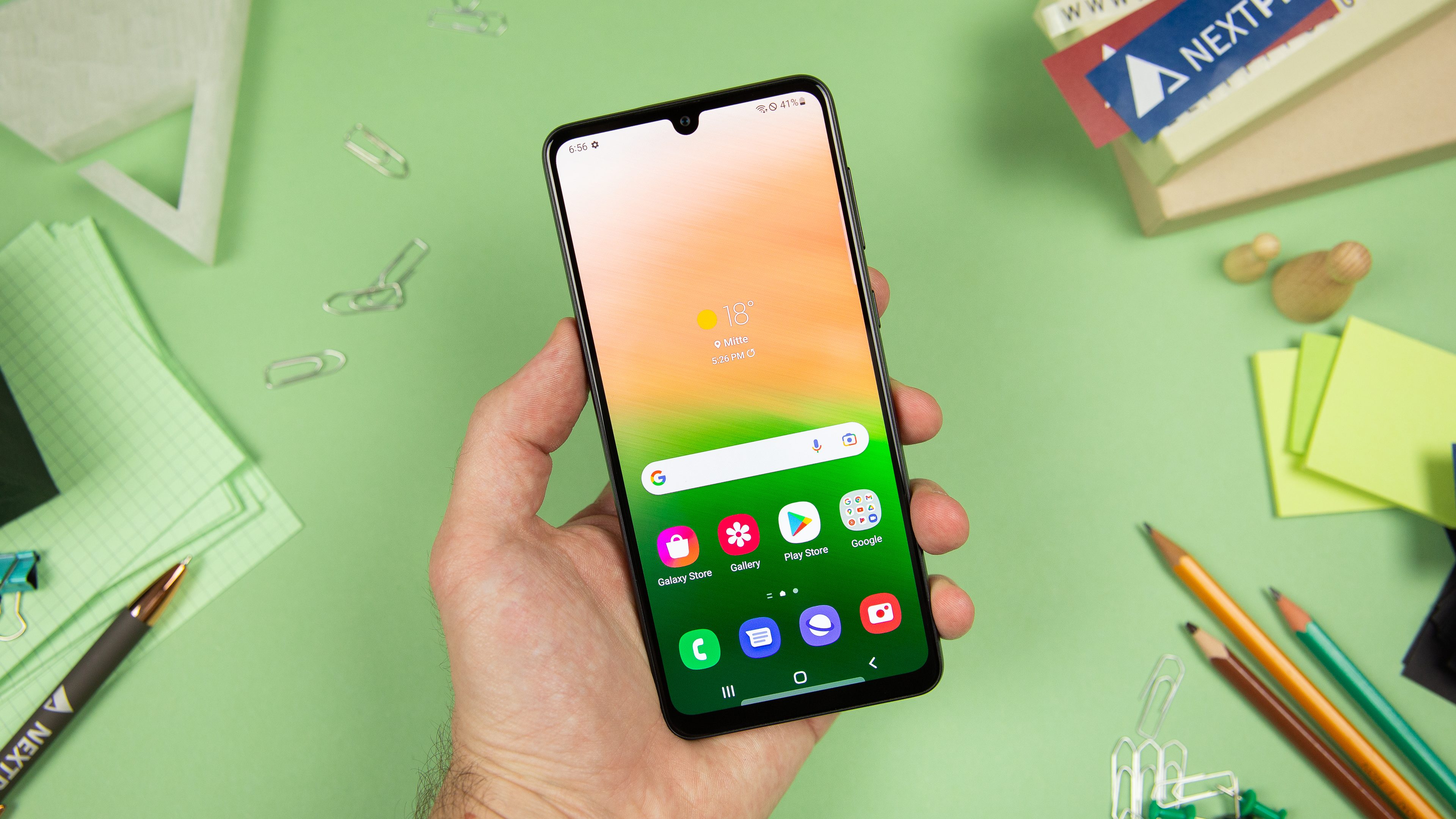
The Samsung Galaxy A33 is the little brother of the Galaxy A53 and shares some features with that mid-range smartphone. Apart from the Galaxy A53, the new Galaxy A34 also overshadows the Galaxy A33 in 2023. Whether you can still buy the Galaxy A33 with confidence and what we think otherwise of this relatively affordable Samsung smartphone can be discovered in our revisit of this handset.
Good
- Powerful AMOLED display
- Decent performance in everyday use
- Great software support
- Capable main camera
Bad
- A bit pricey
- No wireless charging support
- Rather slow Quick-Charging
- No charger included
- No headphone jack
The Samsung Galaxy A33 in a nutshell
The Galaxy A33 is a worthy successor to last year’s Galaxy A32. You get a solid mid-range smartphone with a very capable display, IP67 certification, a beefy 5,000 mAh battery, and a 48 MP primary camera with optical image stabilization for a suggested retail price of $298. The fact that the other camera sensors in the quad-cam configuration are not as capable, not to mention the middling Exynos 1280 SoC that does not cater to gamers, and a missing charger in the box does not really detract from the overall package.
The device also does well when it comes to software, because a) Android 12 with OneUI 4.1 is available and b) the South Koreans’ lengthy update policy also applies here. The only real problem with the Galaxy A33? The insane competition in this price range, including from its own company!
Samsung Galaxy A33 design and build quality
Samsung seems fearful of experimenting with the design language. This is not necessarily a bad thing because with the Galaxy A33 and its mix of plastic at the back and Gorilla Glass in front, it remains very easy on the eyes.
Thanks to solid workmanship, the smartphone has a high-quality feel, and the Galaxy A33 also scores with an IP67 certification.
What I liked:
- High-quality workmanship
- IP67 certification
- Fits well in the hand
- Matte finish
What I disliked:
- Wide bezel under the display
- No 3.5 mm headphone jack
Samsung will not win a Nobel Prize when it comes to innovation with the design of the Galaxy A33. However it is also not necessary to tinker too much when a particular thing has worked well in the past. The look, including the camera island with its transition into the casing is based on other models from the South Koreans. However, its predecessor, the Galaxy A32 5G, still featured camera sensors sans this island.
I also like the matte finish, but I have already made my presence known to the smartphone with my greasy fingers. Out in front, there is a very noticeable chin that is wider than the forehead. Thus, the bezels around the display, which is protected by Gorilla Glass 5, are not symmetrical. This makes my inner Adrian Monk howl with displeasure.
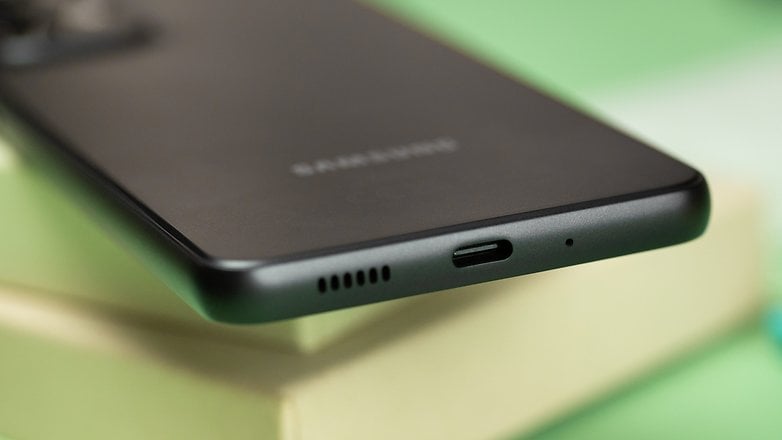
The back is made of plastic, but it doesn’t feel cheap at all. Generally, the device feels very good in the hand, but that might be different for people who don’t have my huge paws. Interestingly, the A33 is minimally longer at 159.7 mm than the A53, which also has a slightly larger screen size across diagonally.
Regarding the IP67 certification, I appreciate that Samsung goes to the lengths of such trouble every single time and are willing to pay this price. Certifications are definitely a cost factor. Those who complain about Samsung models being too expensive should bear that in mind! Xiaomi and its ilk often cut corners by not paying for such certification, even in their flagships!
Perhaps some of you will be bothered by the fact that the 3.5 mm headphone jack is missing. Personally, this does not bother me one bit as I have only used wireless headphones for years, but I wanted to point it out to you, our readers.
Display: Samsung’s usual masterpiece
The display is once again Samsung’s showcase piece. Full HD+, AMOLED technology, and a 90 hertz refresh rate – those are convincing specifications for this price range.
What I liked:
- Great AMOLED display with crisp colors.
- 90 hertz refresh rate.
What I disliked:
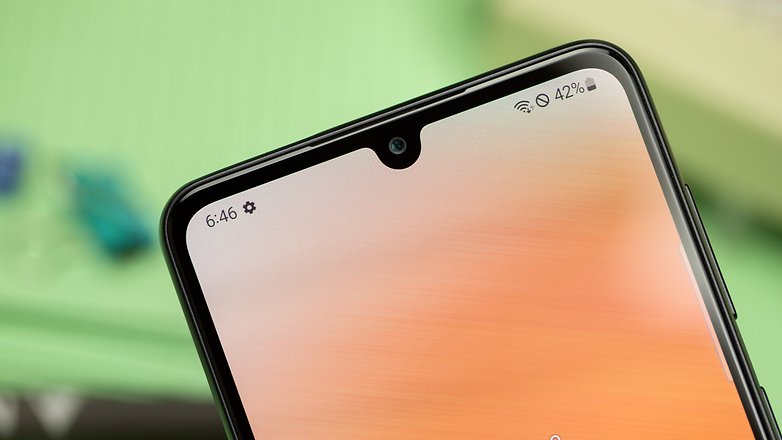
Once again, applause to Samsung for rolling out a strong display. In contrast to the Galaxy A53, images are not repeated at 120 Hz, but 90 Hz is also acceptable within this price range. Unfortunately, it is not adaptive, but you can switch to 60 Hz if you want to. What else do you need to know about the display? That the screen measures 6.4-inches across diagonally and the FHD+ panel relies on Super AMOLED technology. I do not like the U-notch as much; I would have liked a punch hole solution better.
The display convinces with crisp, bright colors and high contrast levels. As is usually the case with Samsung, the colors are quite saturated, which might not be to some people’s liking. However, I certainly like it! The fingerprint sensor in the lower display area responds quickly and reliably.
Performance and software:
The Exynos 1280 does a pretty good job in everyday use. However, Samsung’s very own SoC with 5G support drops to its knees when computing tasks become more intensive. The SoC in its successor, the Galaxy A34, offers a far superior performance, especially its results in the Geekbench benchmark.
What I liked:
- Rather acceptable performance
- 5G support
- Long software updates
What I disliked:
- It stutters quite a bit in demanding games
In his Galaxy A53 review, my colleague Rubens has also dealt with the Exynos 1280 SoC that also powered the handset. Unlike him, however, I had my difficulties when playing Genshin Impact. A clear (but not alarming) heat development was noticeable. And even on low graphics settings, there is still a number of jerky movements. High graphics settings make the game look like a flipbook.
Apart from that, the Exynos 1280 is an “okay” SoC in 2023 that average users should not have any problems with for everyday use. Applications launch quickly and run smoothly. However, I would not recommend the A33 as a gaming device. A look at our table reveals the obvious: The performance of the Exynos 1280 in the A33 is very close to the performance of the Exynos 1280 in the A53.
In the updated table below, I listed the current values measured alongside those of the A33 last year. You can also find the benchmark results of the current Galaxy A34 (review) and the Galaxy A53. While almost nothing has changed in the 3DMark Wild Life test, Geekbench 6 showed a noticeable increase. However, this could also be due to the new version (Geekbench 6 instead of 5), which is supposed to evaluate chipsets a bit differently and in a more precise manner.
At the very least, I did not come across any noticeable improvements that might have resulted from the software when using the Galaxy A33.
| Galaxy A33 (2023) (Exynos 1280) |
Galaxy A33 (2022) (Exynos 1280) |
Galaxy A34 (2023) (Dimensity 1080) |
Samsung Galaxy A53 (Exynos 1280) |
|
|---|---|---|---|---|
| 3DMark Wild Life | ||||
| 3DMark Wild Life stress test |
|
|
|
|
| Geekbench 5 / 6 |
|
The Galaxy A33 only comes in one variant: 6 GB of RAM and 128 GB of internal storage. However, you can expand the storage thanks to the hybrid slot if you do not need a second SIM card. As is often the case with Samsung, this smartphone can also take advantage of virtual RAM. The A33 has 5G network compatibility, which is par for the course for Samsung in 2022. In terms of connectivity, it should be mentioned that WiFi 6 is not yet supported, and “only” Bluetooth 5.1 is available instead of Bluetooth 5.2.
We will keep the points about its software short and sweet. The Samsung Galaxy A33 was released in 2022 with Android 12 and OneUI 4.1 alongside a lengthy update policy. In the meantime, One UI 5.1 (review) which is based on Android 13 has, of course, appeared on the device. Feel free to also take a look at our OneUi 4 review so that it becomes even clearer for you in terms of changes within the software over the course of a year. As for updates: Four major Android updates are promised and five years of security updates are part of the deal. This sets the course for you to still use this smartphone with Android 16. However, it also means that you would have one year less on the clock if you were to buy it now.
Camera: Everything in the daytime
The quad-cam is led by a primary 48 MP camera with optical image stabilization. The rest of the remaining sensors falls a bit short when it comes to performance, but that is not unusual in this price range. A 13 MP shooter makes up the selfie camera.
Samsung also focused on social media-savvy buyers by providing filters and effects to go along with the cameras.
What I liked:
- Decent primary camera.
- OIS in the primary camera.
- Many filter and effect gimmicks (for those who like it).
- Nice portrait mode.
What I disliked:
- Apart from the primary camera, the other sensors fall short.
- Mediocre digital zoom performance.
- No convincing night mode.
The main camera offers 48 megapixels and allows really decent photos, especially during the day. Thanks to pixel binning, pictures with 12 MP are pieced together in standard mode. The camera array offers a total of four cameras:
- Primary camera :48 MP, f/1.8, OIS, AF
- Ultra-wide-angle: 8 MP, f/2.2
- Depth: 2 MP, f/2.4
- Macro:5 MP, f/2.4
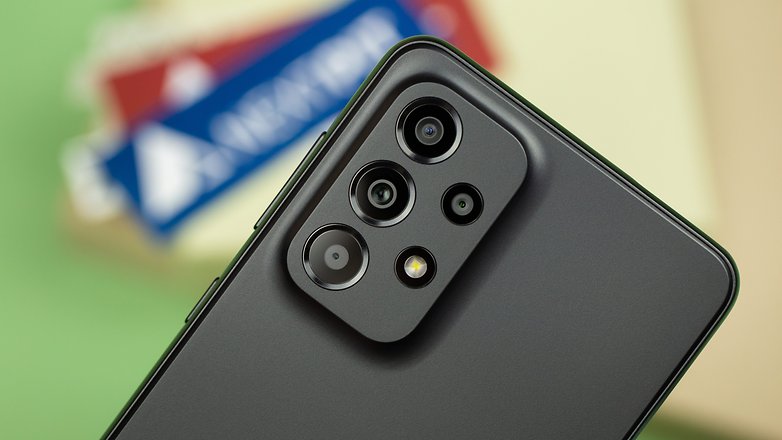
As usual, you will have to look closely at what is hidden behind the sensors, especially in more affordable smartphones. The hardware in that department is weaker than that found in the A53. This is quite an exciting fact in times when the street prices of the two models hardly differ by a noticeable margin. The ultra wide-angle camera still manages usable pictures during the day, although slight color differences in the primary camera are noticeable. Overall, the ultra wide-angle photos look a bit paler to me than I would have liked.
There is also a 5 MP camera for macro shots and a 2 MP sensor that is only responsible for depth information. You should not expect miracles from the macro sensor. Finally, there is a selfie shooter in front at 13 MP resolution. In general, the camera configuration reads exactly like that of its predecessor on paper, apart from the inclusion of optical image stabilization. This also means that there is once again only digital zoom available. 2x magnification is absolutely fine, but you’d better spare yourself the pain of its 10x magnification.
I didn’t notice the night mode much in night photography. Yes, sometimes colors seem less exaggerated. But in general, the differences in the primary camera without night mode are acceptable.
Samsung also wants to score more points by including software features. There is the “Fun” option that provides you with Snapchat filters. In portrait mode, you can use different options for the background, not to mention the presence of AR features. Samsung thus positioned the Galaxy A33 to lean more to social media-savvy people who upload their pictures with filters to Instagram, and less for photo experts who want to print their snapshots on a large canvas.
Battery: The Galaxy A33 is a continuous powerhouse
The battery capacity of 5,000 mAh is again rather high, and the battery lasts for a pleasantly long time. Frugal smartphone users can even manage up to two days of use.
It is just a pity that neither a charger is included in the box nor a really fast Quick-Charging performance.
What I liked:
- Large battery with 5,000 mAh capacity.
- Very decent battery life.
What I disliked:
- “Quick charging” at only 25 watts.
- No included charger.
- No wireless charging.
We also keep telling two identical stories about the battery: First, “fast charging” is not really that fast at just 25 watts. That is okay, but when you look at what the competition from China shovels onto your smartphone within 10 minutes, that is quite a large difference. And the other story is the “Oops, where is the charger” story. There is no charger bundled with the Galaxy A33, either.
But let us talk about something positive: The PCMark battery benchmark recorded a time of 12 hours and 19 minutes (the A53 achieved over 13 hours), and thus, impressed me with its battery life. You will have to do some pretty wild things with the Galaxy A33 to drain this 5,000 mAh battery within a day! I would even claim that the average smartphone user can use the device for up to two days before requiring a recharge.
Technical data:
Other points that might be interesting for you before picking up the Galaxy A33:
- Sound: Dolby Atmos and stereo speakers are on board. The volume is rather decent, but the sound does get a bit scratchy when you crank up the volume.
- Four available colors: black, white, blue and peach. Samsung named them Awesome Black, Awesome White, Awesome Blue, and Awesome Peach.
- A USB-C to USB-C charging cable and SIM card tool are included.
| Samsung Galaxy A33 | ||
|---|---|---|
| Image |  |
|
| Display | 6.4-inch FHD+ Super AMOLED 90 Hz Infinity U display |
|
| SoC | Exynos 1280 5nm Octa-core (2 x 2.4 GHz, 6 x 2 GHz) | |
| Memory | 6 GB RAM | 128 GB internal | |
| microSD | Yes, expandable up to 1 TB | |
| Software | Android 13 with OneUI 5.1 | |
| Rear camera | Main camera: 48 MP, f/1.8, OIS, AF Ultra-wide: 8 MP, f/2.2 Depth: 2 MP, f/2.4 Macro:5 MP, f/2.4 |
|
| Front camera | 13 MP, f/2.2 | |
| Battery | 5,000 mAh 25 watts quick-charging Charging plug sold separately |
|
| Connectivity | 5G, LTE, WLAN 802.11 a/b/g (2.4 GHz), Wi-Fi 4.5 (2.4 GHz + 5 GHz), Bluetooth 5.1 | |
| IP certification | IP67 | |
| Colors | Awesome Blue, Awesome Black, Awesome Peach, Awesome White | |
| Dimensions and weight | 74.0 x 159.7 x 8.1 mm, approx. 186 g | |
| Prices | From $399 | |
| Check offer* |
Check price |
|
Conclusion
The Galaxy A33 is a really decent all-arounder for its price (current market value: $300). The display is first class, good-looking photos can be captured, at least during the day, and the performance is normally decent with 5G support on board, while the battery lasts for a really long time. Do you notice how a big “but!” announces itself here? And yes, there is indeed a “but”: What really hurts the Galaxy A33 is that the competition in this market segment is fierce. And yes, that includes competition from its very own portfolio. The Galaxy A53 hangs over the A33 like the sword of Damocles.
To make matters worse, the Galaxy A33 which was launched for $399, continues to prove itself as a worthy workhorse smartphone while offering improved performance compared to last year’s Geekbench results due to more optimized software — has now met a worthy foe in the form of the Galaxy A34. You can pick up the latter for $300 thereabouts (give or take), rendering the price advantage of the Galaxy A33 impotent.
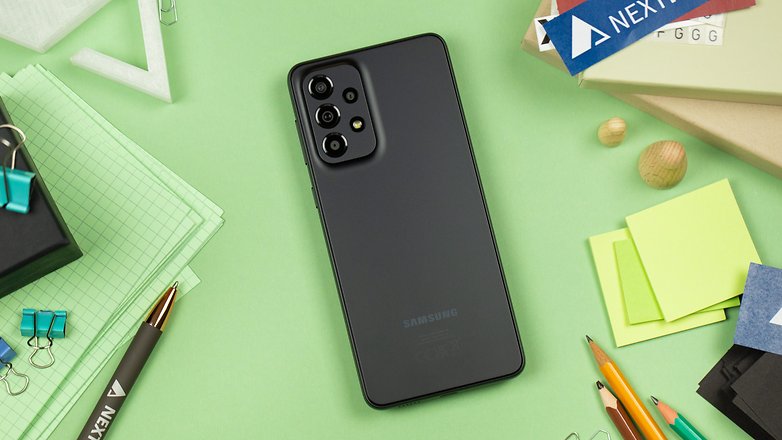
That’s the whole crux of the Galaxy A33: For only about $30 or so more, you can bring home the successor which isn’t really dramatically better but offers a slightly improved performance, and a (in my opinion) significantly better look, which is similar to Samsung’s S-class.
If you are looking for an affordable mid-range smartphone from Samsung, you will also get Android 13 “out of the box”, so this advantage alone would justify the small premium. If you want to see how the Galaxy A33 and the Galaxy A34 perform in a direct comparison, read our story to find out!
Unfortunately, Samsung does not only have in-house competition for the A33. By taking a look at our list of the best smartphones under $300, Xiaomi has shown to have some really threatening candidates that will steal Samsung’s thunder.
Samsung Galaxy A33
To device database


